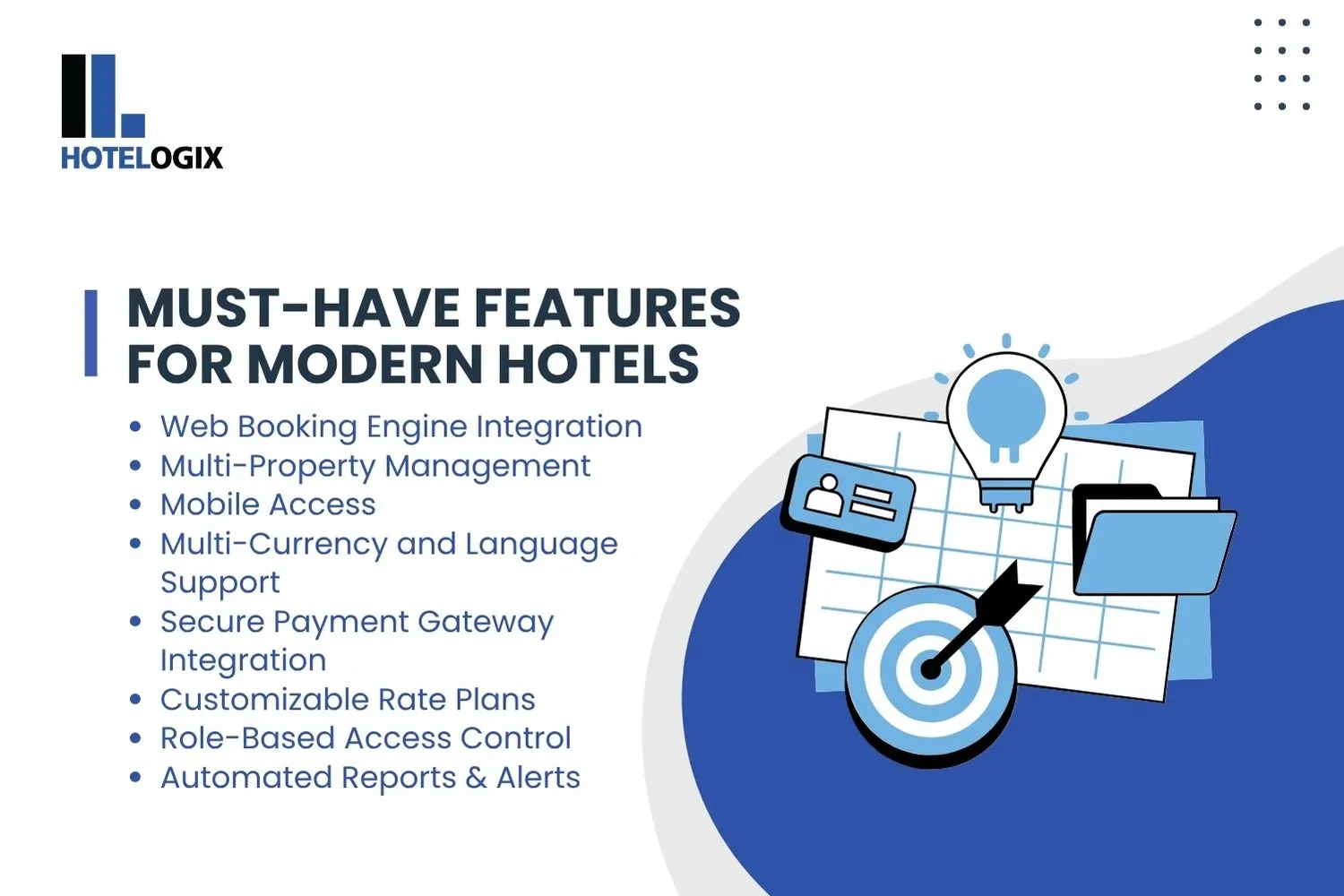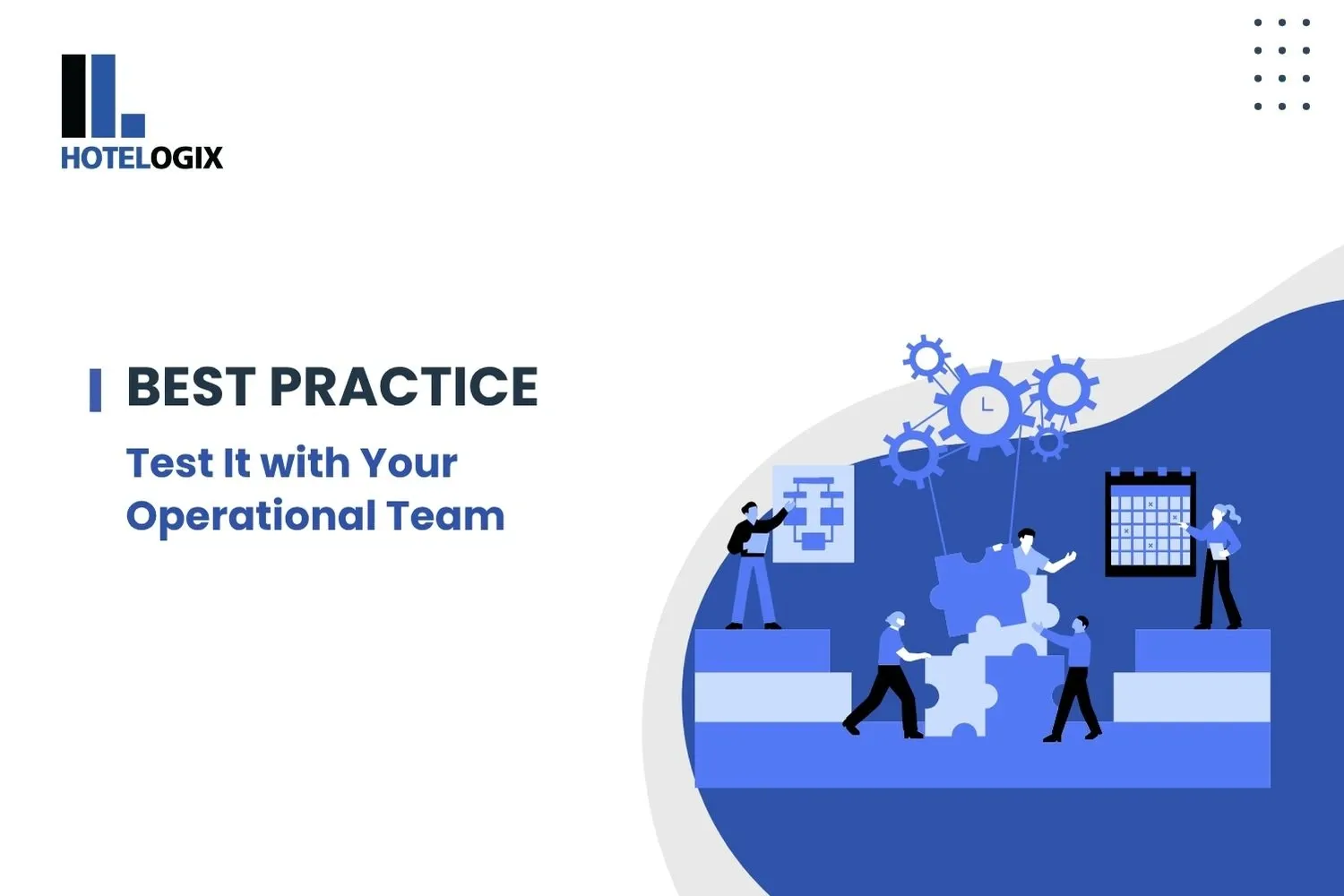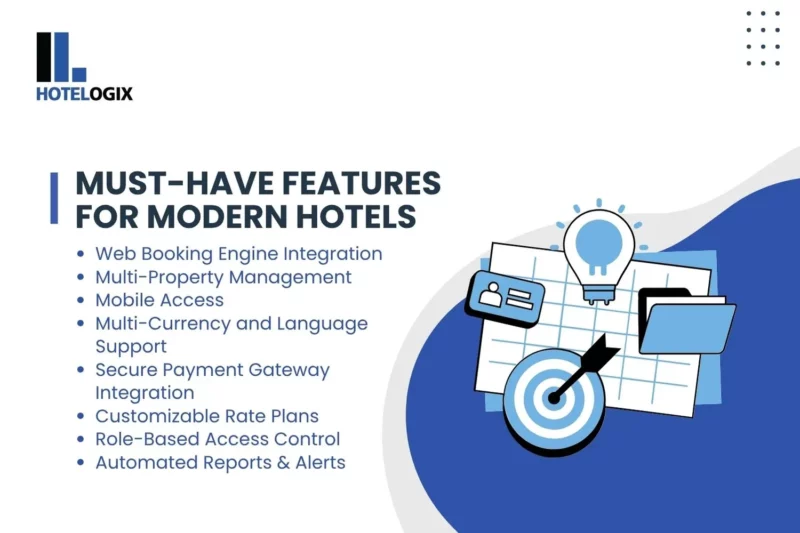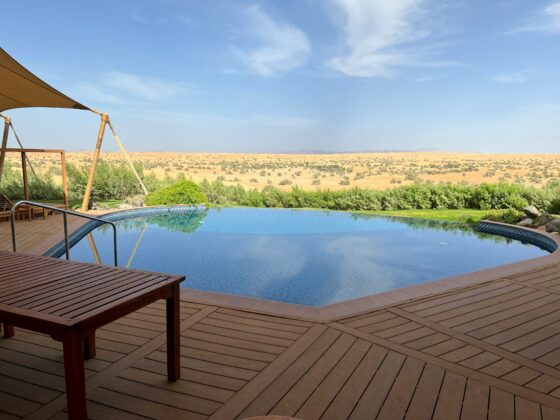Why Every Modern Hotel Needs Smart Software
In today’s fast-moving hospitality landscape, operational efficiency, guest satisfaction, and real-time data are non-negotiable. Whether you run a boutique hotel, a resort, or a multi-property group, managing it with spreadsheets or legacy systems is no longer practical.
That’s where Hotel Management Software (HMS) comes into play. It’s not just about automation—it’s about empowering your team, optimizing guest service, and maximizing profitability. The right HMS allows hoteliers to simplify processes, reduce overhead, and scale with ease.
Latest Fact: Implementing smart technology in accommodation establishments can lead to a staggering average revenue growth of 15%, enabling staff to focus on guest experiences rather than administrative tasks
Source: MoldStud Research Team, “Analytics in Action – Case Studies Demonstrating the ROI of Hospitality Software,” June 2025
What is Hotel Management Software (HMS)?
Hotel Management Software is a comprehensive platform that centralizes and automates hotel operations—from front desk to housekeeping to revenue tracking. It serves as the digital backbone of your hotel, connecting departments, reducing manual workload, and providing real-time control over operations.
For today’s hoteliers, selecting the right HMS isn’t just a tech decision. It’s a business strategy.
Core Operational Functions of a Hotel Management System
Here’s a breakdown of what modern HMS platforms should handle:
|
Function |
Purpose |
|
Centralizes online, offline, and group bookings |
|
|
Manages check-ins, check-outs, and room assignments |
|
|
Channel Manager Integration |
Enables real-time OTA management and prevents overbookings |
|
Billing & Payments |
Automates folios, taxes, and payment collection |
|
Housekeeping Dashboard |
Assigns and updates room status in real time |
|
Reporting Tools |
Tracks key KPIs like ADR, RevPAR, and occupancy |
|
POS Integration |
Manages outlets like restaurants, spas, and in-room services |
|
Guest Data Management |
Stores guest history, preferences, and loyalty data |
|
Supports dynamic pricing and demand forecasting |
Must-Have Features for Modern Hotels

When evaluating hotel management systems, these features are considered essential for success:
- Web Booking Engine Integration Boost direct bookings with a mobile-friendly interface that supports promotions and group rates.
- Multi-Property Management Manage two or twenty properties with shared data access and group-level controls.
- Mobile Access Allow managers and staff to operate the system from tablets or smartphones—essential for modern workflows.
- Multi-Currency and Language Support Ensure a smooth experience for international travelers and teams across regions.
- Secure Payment Gateway Integration Accept payments through cards, wallets, and UPI, all within a PCI-compliant environment.
- Customizable Rate Plans Offer flexible packages for different customer segments—corporate, long-stay, or event-based.
- Role-Based Access Control Define permissions for departments and roles to protect sensitive data.
- Automated Reports & Alerts Reduce manual effort with scheduled daily summaries, audit trails, and housekeeping task lists.
While there are free HMS options in the market, they usually fail to meet the complex demands of real-world hotel operations. Issues include:
- Security vulnerabilities due to lack of encryption or regular updates
- Limited support, leaving your staff to troubleshoot during operational hours
- Hidden costs for basic features like POS integration or extra users
- Inability to scale for growing businesses or chain hotels
In contrast, reliable cloud-based software offers ongoing support, compliance with local tax laws, and integration with critical tools like channel managers, revenue management systems, and POS.
A Real Example: Why Real-Time OTA Management Is Essential
Consider this situation:
You receive a last-minute walk-in booking, but your inventory hasn’t yet been updated across OTAs. Meanwhile, an online guest books the same room. Now you’re double-booked.
With real-time OTA management, the moment a booking is made or a room is blocked, your inventory is instantly updated across all connected OTAs. This prevents revenue loss, avoids guest dissatisfaction, and saves staff time on manual updates.
Evaluation Checklist: What to Look for Before You Buy
Before you commit to any software, make sure you’ve evaluated it against real hospitality needs:
|
Evaluation Question |
Why It Matters |
|
Does it support multi-property operations? |
Centralizes your control and reporting |
|
Is it mobile-accessible? |
Helps your team work on the move |
|
Can it integrate with a channel manager, POS, and revenue management system? |
Ensures end-to-end connectivity |
|
Is there a trial or demo available? |
Lets you test usability before full adoption |
|
How is onboarding and training handled? |
Affects how quickly your staff adapts |
|
What is the vendor’s support response time? |
Affects your operational uptime |
Best Practice: Test It with Your Operational Team

Don’t evaluate HMS solutions based only on admin or leadership inputs. Involve the teams who’ll actually use the software daily:
- Front Desk: for check-ins and guest communications
- Housekeeping: for room status updates and turnaround
- F&B Managers: for billing integration and POS
- Finance: for reporting and reconciliation
A 10–14 day trial across live operations will reveal system fit, gaps, and opportunities for customization.
Product Focus: Why Multi-Property & CRS Control is a Game-Changer
– Single Dashboard Across Properties View reservations, availability, and revenue across all hotels in one centralized panel.
– Central Reservation Office (CRO) Route all booking inquiries—calls, emails, direct—through a unified team managing all your hotels.
– Standardized Room Categories and Rates Apply group-level rate plans while allowing local-level flexibility.
– Group-Wide Analytics Compare performance across locations and identify top-performing properties.
– OTA and Channel Manager Sync Any changes made centrally reflect instantly across all OTAs via integrated real-time OTA management.
– Future-Ready Scalability Whether you’re onboarding your second hotel or tenth, the system grows with you—no disruptions.
For chains or brands aiming for consistency and control, this feature alone justifies the investment in a modern HMS like Hotelogix.
The hospitality business is evolving. With rising guest expectations, growing OTA dependence, and the need for operational agility, the role of hotel management software is more critical than ever.
Latest Industry Growth The global hospitality market grew to $4.9 trillion in 2024, with the industry’s GDP impact hitting a record $11.1 trillion (10% of global GDP). Between 2022 and 2032, travel and tourism are expected to grow at 5.8% annually, outpacing global economic growth (2.7%).
Source: EHL Insights, “Hospitality Industry Trends For 2025,” 2025
When selecting your HMS, don’t just check off features—evaluate fit. Choose a platform that aligns with your operational goals, supports your team’s daily tasks, and prepares your hotel for growth.
A well-chosen HMS won’t just help you run your property—it will help you elevate it.









